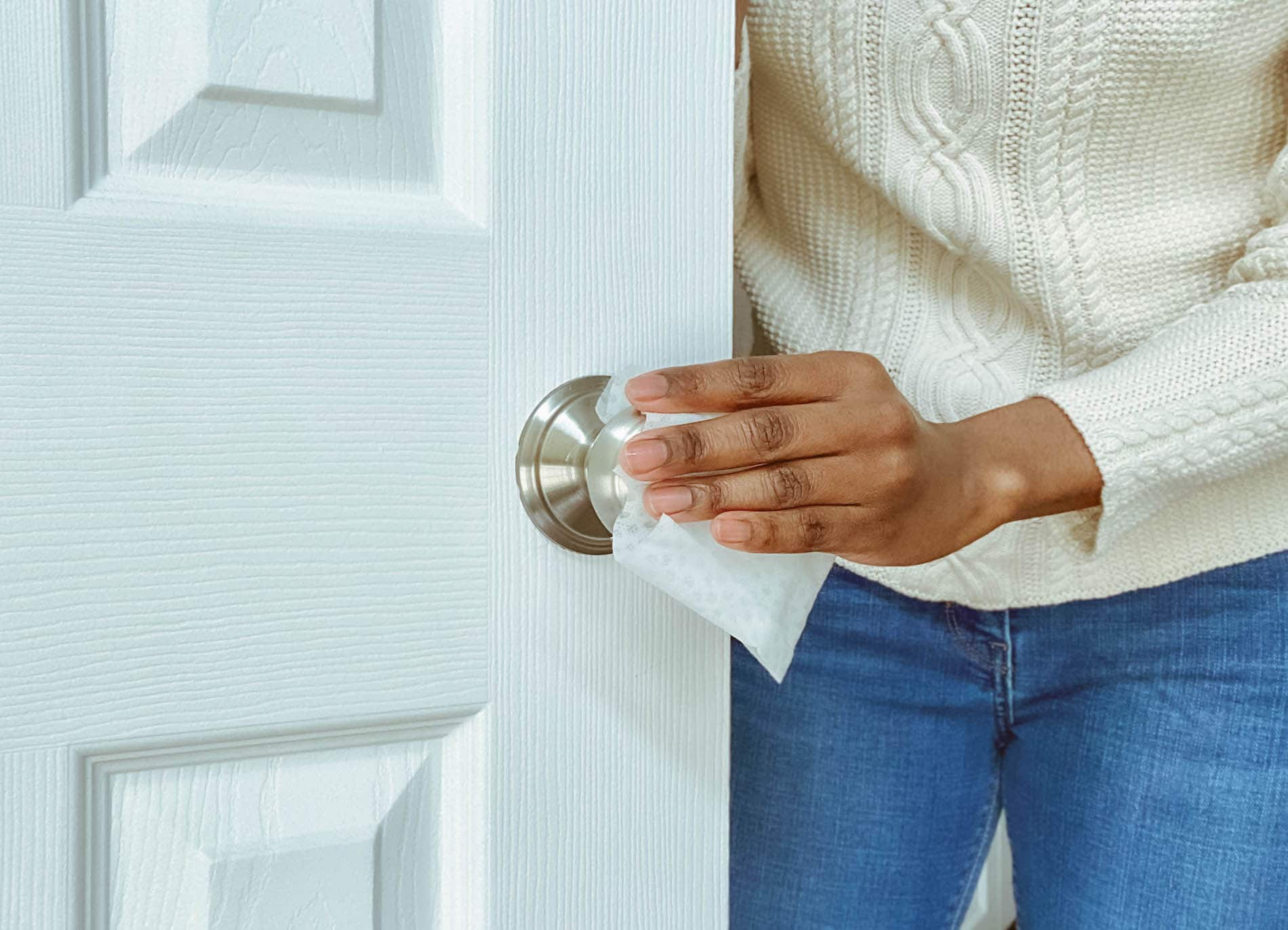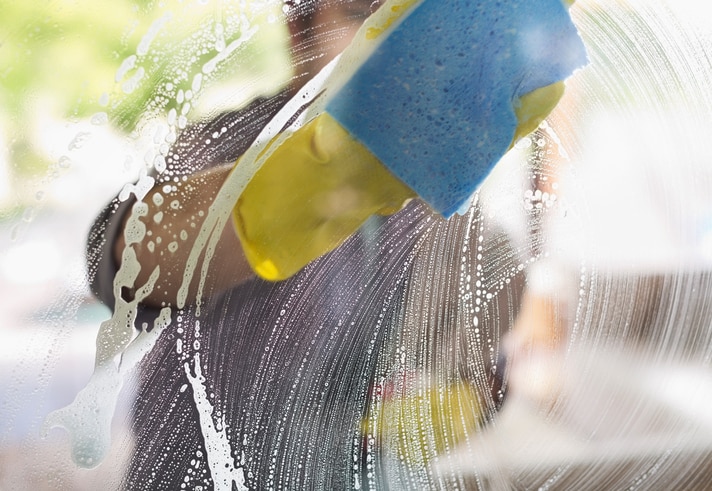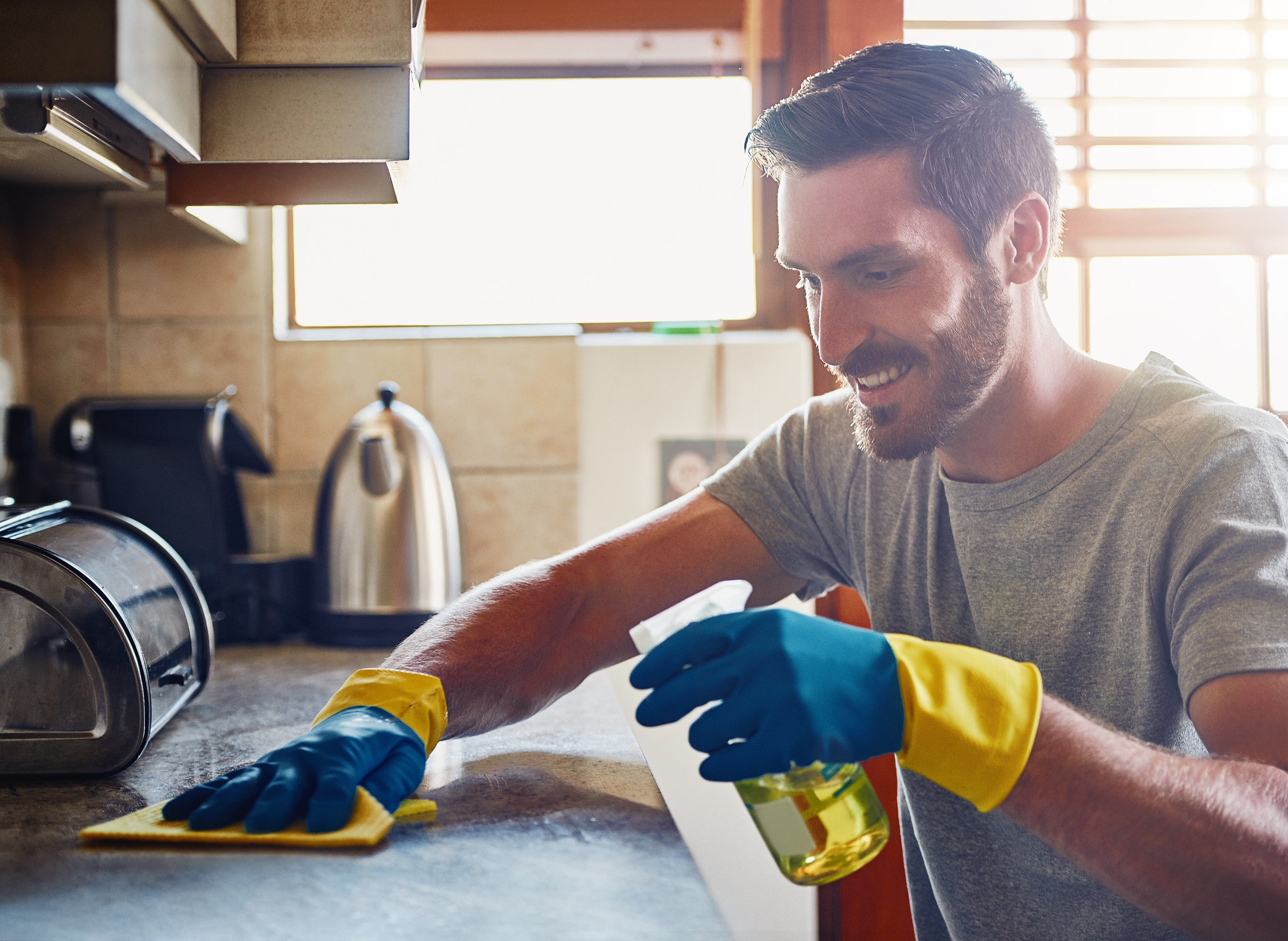The terms “maid” and “housekeeper” are sometimes used interchangeably, but the difference between the two roles is pretty stark — not to mention, the former is an antiquated term (more on this shortly). “The word ‘maid’ often makes folks think of someone who mainly does basic cleaning, like dusting, vacuuming and maybe a little tidying up,” explains Hector Stewart, owner of Baltimore HCS Home Cleaning Services. “A housekeeper, on the other hand, tackles a whole lot more.”
Unsure about the difference between housekeeper and maid duties, along with the proper, most respectful language for the professions? Here, experts break down the distinctions between a maid vs housekeeper and share the most up-to-date terminology.
Housekeeper vs. maid
When it comes to job scope, housekeepers cover more than what has formerly been known as a maid.
“A housekeeper has an extended scope of work that includes day-to-day housekeeping duties, such as laundry, organization and cooking,” notes Kathy Greene, a former recruiter with Clearview Cleaners in Orlando. “A maid generally sticks to cleaning tasks.”
What is a housekeeper?
A housekeeper can be thought of as a sort of house manager, notes Stewart. No two positions are alike, but here are some of the tasks the job may include:
- Cleaning.
- Laundry.
- Grocery shopping.
- Meal planning.
- Keeping an eye on older kids occasionally, if needed.
- Scheduling appointments.
- Running errands.
- Generally making sure everything is running smoothly at home.
“Think of a housekeeper as someone who helps run your home day to day, not just keep it clean,” Stewart says, adding: “If you want someone who can take over a bunch of daily to-dos so you don’t have to think about them, a housekeeper might be your best bet.”
Another way to think of it, per Greene: Housekeepers tend to handle ongoing, rather than occasional, tasks, and hence have a more frequent work schedule (many work daily).
It’s also worth noting that “housekeeper” is a newer job, relatively speaking, with the role becoming popular in “the last few decades,” according to Stewart.
“Families started noticing they needed help with more than just cleaning,” he continues. “There were errands to run, kids’ schedules to juggle and laundry piling up. So, the person who helped around the house became more of an all-around household manager, which is what ‘housekeeper’ really captures.”
“If you want someone who can take over a bunch of daily to-dos so you don’t have to think about them, a housekeeper might be your best bet.”
— Hector Stewart, owner of Baltimore HCS Home Cleaning Services
What is a maid?
The role of what was once referred to as a maid essentially sticks to cleaning and tidying. Here’s what their job scope generally entails:
- Dusting.
- Vacuuming.
- Mopping floors.
- Wiping surfaces.
- Scrubbing bathrooms.
- Polishing furniture.
- Emptying bins.
- Taking out trash.
- Keeping track of cleaning supplies and products.
According to Stewart, “if you only need help with generally cleaning and some tidying up, then hiring a maid would do the trick.”
Is the term “maid” outdated?
Yes. “We regard the maid label as dated due to its history of enslavement and lack of professional respect,” notes Greene.
“It’s old fashioned and has a servile vibe,” Stewart agrees. “Many of us in the cleaning industry prefer job titles that highlight professionalism and respect. After all, cleaning is hard work, and it deserves the right kind of recognition.”
What professional label has taken the place of “maid”?
The term “cleaning lady” took off in the mid-20th century, says Greene, adding that it’s equally obsolete terminology. “The term ‘cleaning lady’ was dismissed or gendered, turning the occupation into a stereotype rather than a profession,” she explains. “To use more general and official language recognizes the laborer’s value and competence.”
What’s the proper language then? Stewart prefers “cleaning technicians” or “cleaning techs.” This, he notes, shows that they’re skilled professionals, regardless of gender.
Why does language matter?
Language has power, full stop. When you use professional terms, it’s showing respect by giving credit where credit is due.
“Calling someone a ‘cleaning technician’ recognizes that they have real expertise — from knowing which products to use on which surfaces to keeping up with hygiene best practices,” Stewart says. “When we choose titles that respect their skill, it helps people feel proud of the work they do. Inclusivity isn’t just about being politically correct — it’s about honoring the professionalism and commitment these folks bring to other people’s homes.”
The bottom line
There is a difference between a maid and housekeeper, but it’s best to trade in the outdated term “maid” for something more respectful, such as “cleaning technician.”
Says Greene: Using updated terminology “provides dignity, accurately communicates what the worker is doing, and promotes equity and professionalism.”





